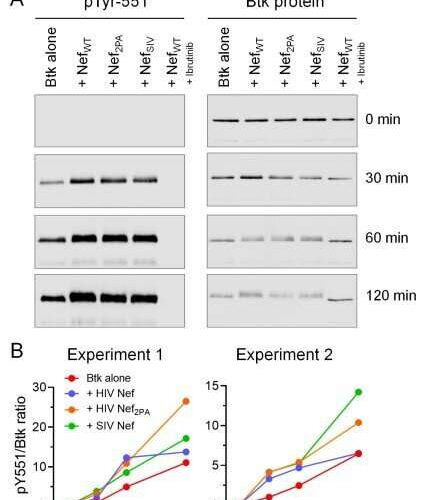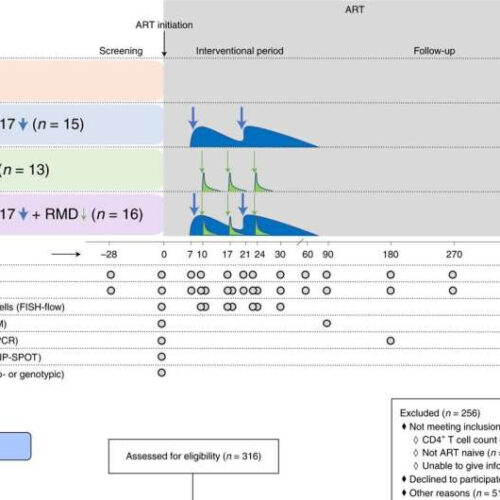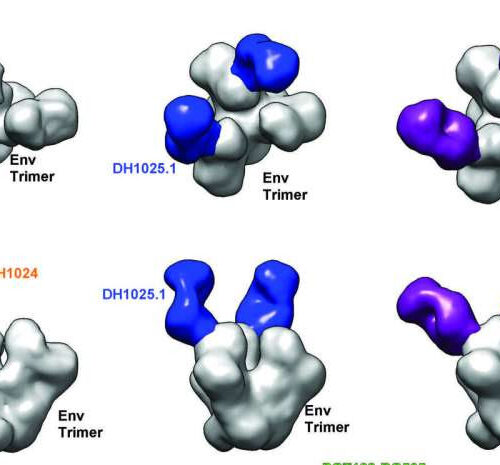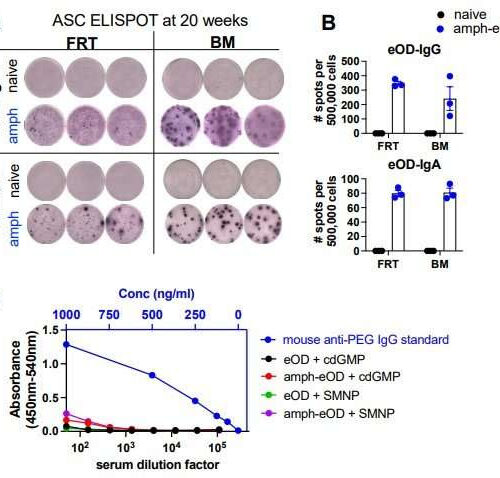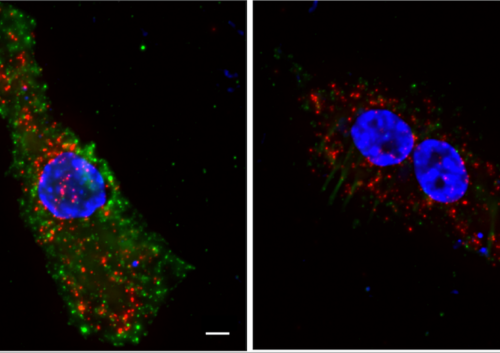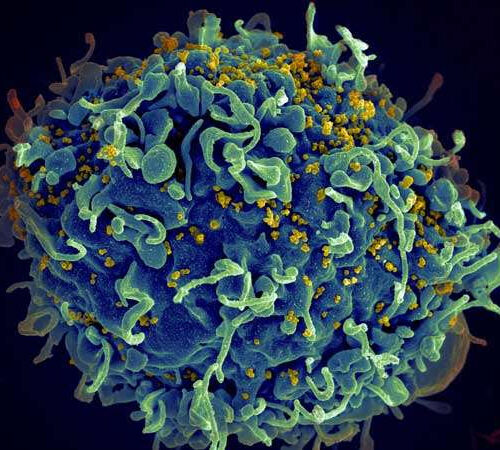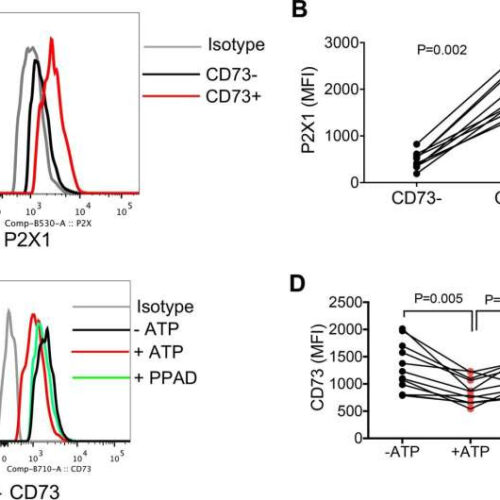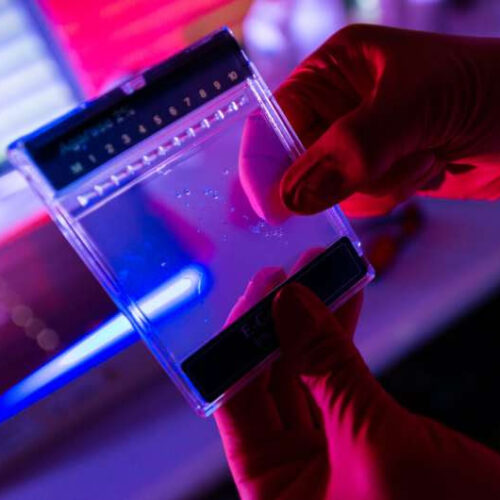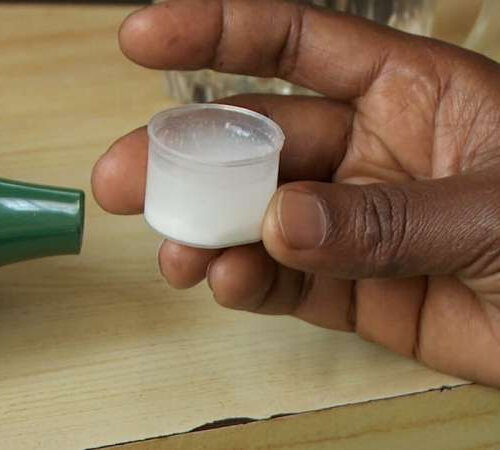by Delthia Ricks, Medical Xpress Nef induces Btk autophosphorylation at Tyr551 in the activation loop. Each kinase reaction was performed with Btk alone or in presence of HIV‐1 Nef wild‐type (WT), the PxxP to AxxA mutant (2PA), SIV Nef, or wild‐type Nef plus 1 µM ibrutinib as a negative control. Aliquots collected at 0, 30, 60,...
Tag: <span>HIV</span>
Study takes major step in pursuit of HIV cure
by Aarhus University Trial design and participant flow diagram. a,b, The eCLEAR trial design (a) and abbreviated CONSORT flow diagram (b). Credit: Nature Medicine (2022). DOI: 10.1038/s41591-022-02023-7 For around 40 years, scientists all over the world have been unsuccessfully trying to find a cure for HIV, but now a team of researchers from Aarhus University and Aarhus University...
Vaccination for HIV shows promise in rhesus macaques
by Bob Yirka, Medical Xpress 3D reconstructions of images of the vaccine-induced antibodies DH1024, DH1025.1, and DH1027 bound to CH505 SOSIP Env trimers. Credit: K. Saunders, et al, Science Translational Medicine (2022) A team of researchers affiliated with several institutions in the U.S. has developed a vaccine for HIV that shows promise in rhesus macaques. In their...
Intranasal vaccination produces potent systemic immunity against HIV and SARS-CoV-2 in animal models
by Delthia Ricks, Medical Xpress Long-lived antigen-specific IgG and IgA plasma cells are established in mice following intranasal immunization with amph-protein, without induction of anti-PEG antibodies. BALB/c mice (n = 3 animals per group) were immunized i.n. with 5 µg amph-eOD mixed with 25 µg cdGMP adjuvant and boosted 6 weeks later with the same...
Immune system uses two-step verification to defend against HIV
SCRIPPS RESEARCH INSTITUTE IMAGE: FOR INNATE IMMUNE SYSTEM ACTIVATION AGAINST HIV-1, SCRIPPS RESEARCH SCIENTISTS HAVE FOUND THAT THE PROTEIN PQBP1’S RECOGNITION OF INCOMING HIV-1 PARTICLES (DEPICTED IN RED) IS REQUIRED FOR CGAS ACTIVATION, A PRODUCTION OF CGAMP (DEPICTED IN GREEN), IN HUMAN DENDRITIC CELLS. NUCLEI (DAPI) ARE DEPICTED IN BLUE. CREDIT: SCRIPPS RESEARCH LA JOLLA,...
Antibody therapy controls HIV for months in new clinical trial
by Rockefeller University HIV infecting a human cell. Credit: NIH Antiretroviral therapy has made HIV a manageable condition, but it does not eliminate the virus from the body—and most regimens are expensive and require a pill every day, for the rest of the patient’s life. Now, findings from a clinical trial led by Rockefeller University...
New study reveals why HIV remains in human tissue even after antiretroviral therapy
by Tarwinder Rai, University of Alberta P2X1 is strongly expressed on CD73+CD8+ T cells and its inhibition partially restores the potential effects of ATP. (A) Representative histogram plots, and (B) cumulative data showing P2X1 expression in CD73-/CD73+ CD8+ T cells. (C) Representative histogram plots, and (D) cumulative data of CD73 expression with/without treatment with ATP (25 μM) and...
COVID-19 genetic risk variant protects against HIV
by Max Planck Society DNA analytics in the lab. Credit: Max Planck Institute for Evolutionary Anthropology The genetic variants we are born with can increase or decrease our risk of falling seriously ill with COVID-19. The major genetic risk variant for severe COVID-19, one we inherited from Neandertals, is surprisingly common. This raises the question...
Tomato concentrate could help reduce chronic intestinal inflammation associated with HIV
UNIVERSITY OF CALIFORNIA – LOS ANGELES HEALTH SCIENCES IMAGE: SCIENTISTS DERIVED THE CONCENTRATE, WHICH CONTAINS ANTI-INFLAMMATORY AND ANTIOXIDANT PROPERTIES, FROM GENETICALLY MODIFIED TOMATOES. CREDIT: ARINA KRASNIKOVA/PEXELS New UCLA-led research in mice suggests that adding a certain type of tomato concentrate to the diet can reduce the intestinal inflammation that is associated with HIV. Left untreated,...
Easy-to-take medicine better at suppressing HIV in children
by University College London Dispersible medicine for young children. Credit: Picturing Health, picturinghealth.org A once-a-day antiretroviral medicine that is low-cost and easy for children to take is also more effective at suppressing HIV than standard treatments, according to a global trial led by researchers at UCL. The study, published today in The New England Journal of Medicine, found...

